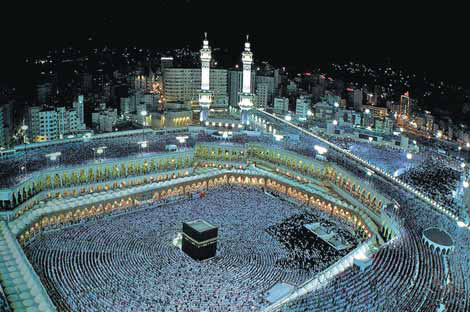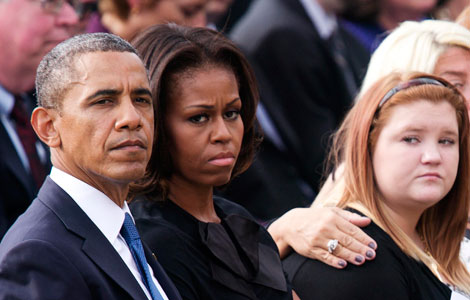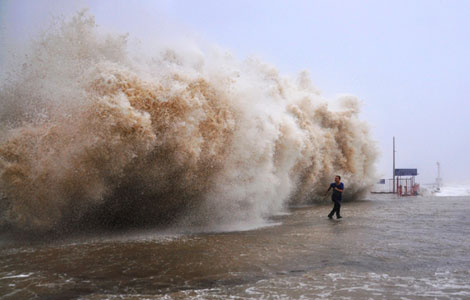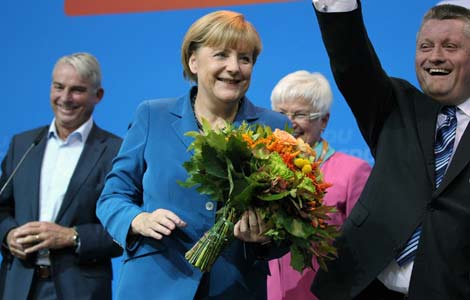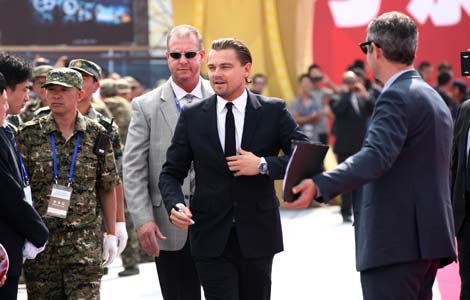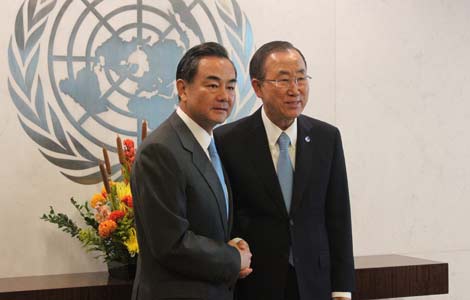Kingdom marks its glorious National Day
Updated: 2013-09-23 06:53
(China Daily)
|
||||||||
Saudi Arabia celebrated its National Day on Monday. On Sept 23, 1902, the King of Saudi Arabia Abdulaziz bin Abdurrahman al Saud declared the establishment of the kingdom and proceeded to modernize the country.
In January 1902, King Abdulaziz and his father Imam Abdurrahman bin Faisal re-entered Riyadh City. He took over political and religious powers from his father and began to unite the country.
Beginning with southern Riyadh, the new king started to unite Najd by defeating his opponents in an area called Dalam near Kharj and took over all towns of southern Riyadh, including Kharj, Al Hareeq, Al Aflaj and Wadi Al Dawasir.
On Sept 23, 1932, Abdulaziz finished uniting the country and proclaimed himself king of the newly established Kingdom of Saudi Arabia. Every year since, that day has been celebrated as the kingdom's National Day.
From the beginning, King Abdulaziz organized his kingdom in a modern way.
He delegated authority and formed a government for Hijaz area after conquering it. He also assigned to Prince Faisal the chairmanship of the Shuora Council, which was a consultative council.
He then formed several ministries to run the government. Diplomatic relations with some countries were established, and ambassadors, councils, commissioners and ministers were also appointed.
He also began to improve the social and economic conditions of Saudi Arabia.
In 1937, oil was produced in commercial quantities in the eastern region, thereby increasing the wealth of the country, which in turn contributed to the development of the kingdom and the welfare of its citizens. The Saudi Arabian Monetary Fund was then established.
To further boost the country's economic development, a network of telecommunications was established along with the Saudi Arabian Airways in 1945. A pipeline was constructed from the Arabian Gulf to the Mediterranean Sea. Asphalt roads were also constructed and a railway line was established to link Riyadh with Dammam.
The king also ordered that agricultural equipment should be bought and distributed among farmers.
Among the first achievements of King Abdulaziz was to settle the nomads in villages and agricultural lands. An army of volunteers was formed out of these settled nomads.
The new king attached great importance to educating the people. He instructed his government to establish new schools and institutions and encouraged publishing, especially Islamic books.
Eager to spread Islamic education and knowledge, the king supported teachers, clerics and private schools, and he established a department to oversee education in the kingdom.
He expanded the Prophet's Mosque and supplied it with water, medical and other services for those making the annual Hajj, or pilgrimage to Mecca.
A law governing the pilgrimage was enacted, and the king himself supervised its implementation to prevent anyone from exploiting pilgrims, especially in transportation and accommodation services.
The king ensured that food and water were provided to the pilgrims in sufficient quantities.
Additionally, the king achieved a lot in terms of security, law and order. He was strict in applying the law and punishing anyone who tried to bring disorder in the kingdom.
He succeeded in laying a firm basis for an Islamic system of law focused on responsibility and good governance. Ministries and governmental organizations were established to continue this development. New innovations were imported to replace the old systems.
The judiciary was based on Sharia law, the traditional Muslim moral code, and various courts were formed as a result.
In addition to making the kingdom strong on the inside, the king worked hard to enhance its status as a player on the global stage.
He established solid relations with other countries based on clear objectives and adherence to the principles of Islamic teachings. His diplomacy focused on building relationships with Arab countries. He worked hard to unite them on international issues and solve their internal differences through dialog.
The Royal Embassy of Saudi Arabia to China provided the story.
|
The Holy City of Mecca in Saudi Arabia. Photos Provided to China Daily |
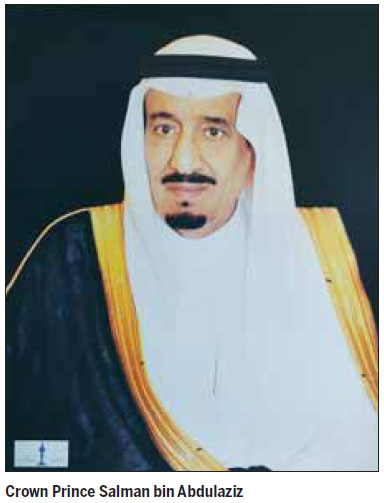
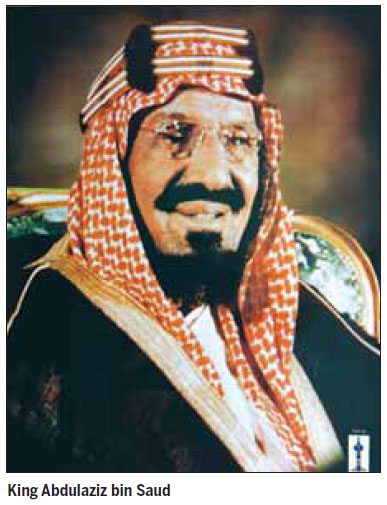
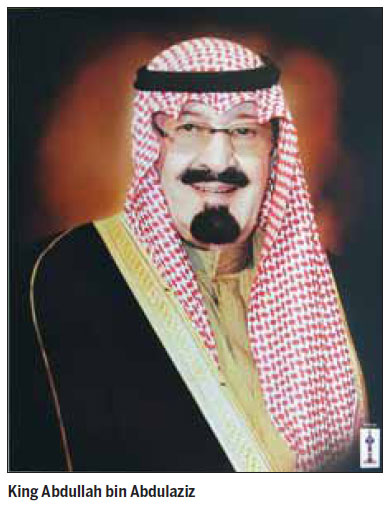
(China Daily USA 09/23/2013 page10)
Most Viewed
Editor's Picks

|

|

|

|

|

|
Today's Top News
Israeli soldier killed in West Bank shooting
Death toll in Nairobi mall attack rises to 68
Verdict for Bo Xilai: Life in prison
Amber alert across Asia, but not red
China foreign minister at UN
Smithfield shareholder vote Tuesday
China signs 12 deals with Venezuela
Trending news across China
US Weekly

|

|
